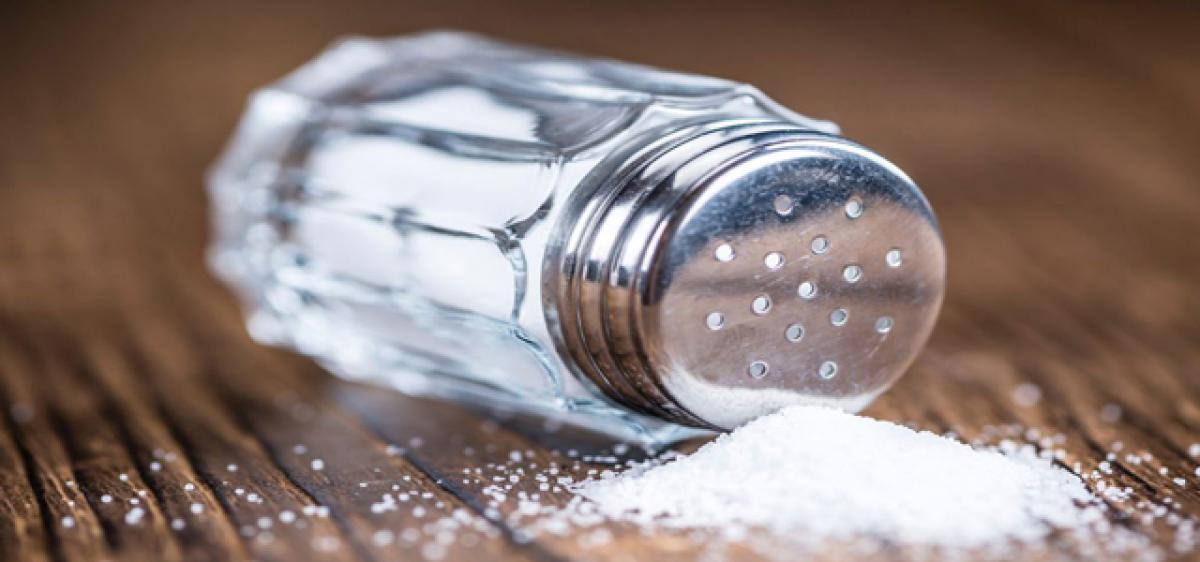Salt intake: Some facts and myths

There are many elements essential to life, and Salt is one of them. Natural salt is an important part of many biological processes. Many studies have been conducted on the amount of salt one should consume as part of their daily diet. Salt is essential to maintain fluid balance in the body.
There are many elements essential to life, and Salt is one of them. Natural salt is an important part of many biological processes. Many studies have been conducted on the amount of salt one should consume as part of their daily diet. Salt is essential to maintain fluid balance in the body.
Very less salt can result in weakness or even muscle spasms while too much of it can lead to complications for the heart. The World Health Organisation recently issued guidelines on per-day salt consumption. According to these, adults should consume less than five grams of salt a day.
This, however, is contrary to what another study that says, below three grams of sodium per day can increase the chances of heart attack and heart failure, leading to death.
With so much of research around this element, there is much doubt about what is the right approach to including salt in our diet. This article is an attempt to bust some myths and bring the facts to the fore.
- The main reason to be worried about salt intake is blood pressure
This is not very true as excess sodium can lead to other health issues like gastric cancer, stomach ulcers, osteoporosis, muscle cramping, and brain function. Salt intake may not be the direct cause of, but can contribute to a rise in blood pressure.
- It is all right to drastically reduce the intake of salt.
Salt being a major component of blood, is an important element of our diet. It aids in carrying nutrients into and out of cells and in regulating blood pressure. It also helps in nervous-system function. The only criterion that decides the amount of salt one should consume is an individual's sensitivity to salt.
- It is important to add salt while cooking to ensure adequate salt in your diet.
A lot of our sodium intake comes from processed food. Meats, canned food, ketchup, breads, biscuits, etc., all have a high content of sodium in them. However, that does not mean one should consume these to get their daily share of salt!
- No salt makes food bland
There are plenty of other options to replace that added salt in your food. Herbs, spices, garlic, onion, lemon and lime juice, red and black pepper are few things that can make your food taste great. The fact is that it is not the salt in your home-cooked meals that has an impact but the processed foods that you consume.
- It is all right for young people to not be worried about their salt intake.
This is not true. Excessive salt consumption makes the body hold onto extra fluid. This puts much pressure on the heart and kidneys, as well as the arteries thus increasing the risk of heart disease and high blood pressure later. Though the metabolism in youngsters may be good, it is not a good idea to use that as an excuse to consume excess salt.
- Working out helps offset intake of salt
According to a recent study, physical activity can help in lowering cases of blood pressure due to salt consumption, particularly in salt-sensitive individuals. Although excess salt can still cause fluid retention, working out can definitely help in keeping the blood pressure in check.
- Table salt has more sodium than other varieties like Himalayan, Kosher, and sea salt
This is not true as all of these contain almost similar amounts of sodium.There are no studies to indicate otherwise. These salts may however give that added taste to food. There are many who claim that these salt variants contain traces of calcium, potassium, iron, and phosphorus, but there is no evidence to the effect.
Despite all the warnings and myths about salt, it is not that bad after all. What then is the secret to eating salt? The answer in one word is moderation. (Author is the head of Quantitative Health at Grow Fit)
By Dr Vinay Bhardwaj











